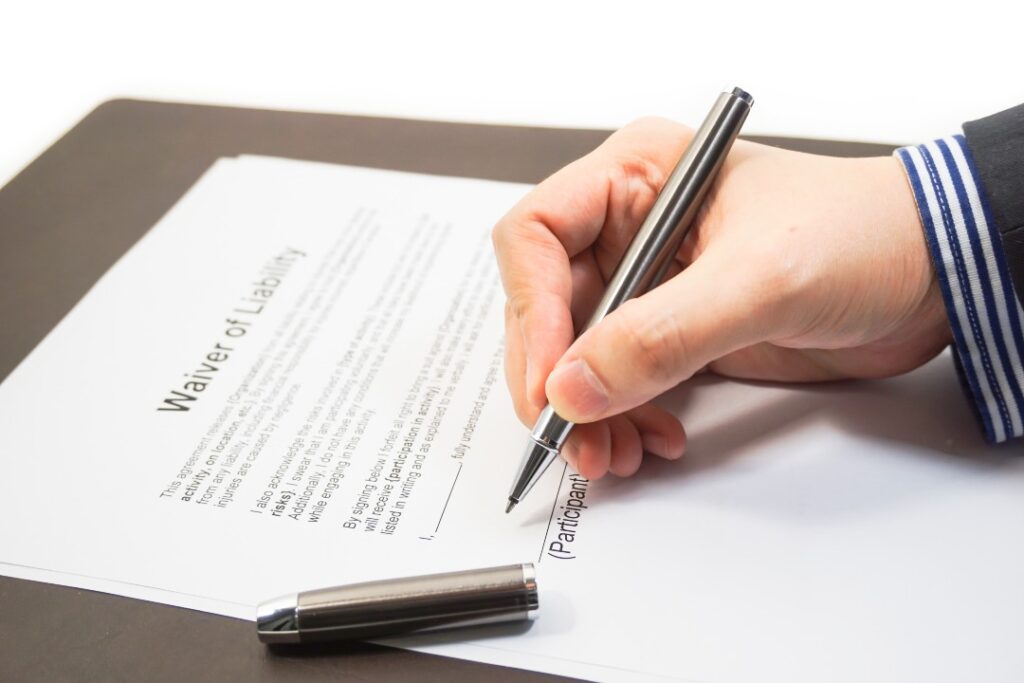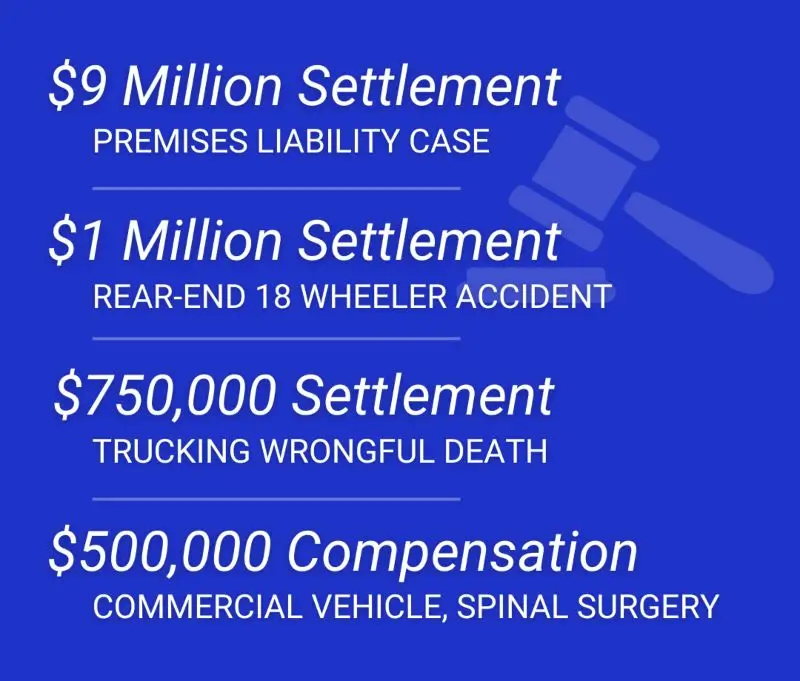Have you ever signed a liability waiver before participating in an activity or event? Liability waivers are commonly used to protect businesses and organizations from lawsuits in case of injury. However, many people don’t realize the implications of signing these waivers, which can often mean giving up significant legal rights. In this post, we’ll take a closer look at liability waivers and their impact on injury lawsuits in Texas.

What Does the Term Liability Waiver Refer To?
A liability waiver, also known as a release of liability, is a legal document that absolves a company or organization from liability in case of an accident or injury. By signing a waiver, you agree to waive your right to sue the company for damages or injuries that you may sustain while participating in an activity or visiting their premises. Waivers are commonly used in a wide range of settings, such as gyms, sports clubs, amusement parks, and even rental equipment services.
What Does a Liability Waiver Cover?
Liability waivers can vary widely depending on the type of activity or service involved. Generally, the waiver will release the company from all claims related to bodily injury, property damage, or death that may arise from your participation in the activity or use of the service. However, some waivers may also include clauses that release the company from claims related to negligent acts or omissions on the part of the company or its employees.
Do Liability Waivers Hold Legal Weight?
The enforceability of liability waivers varies from state to state. In some states, waivers are strictly enforced, while in others they may be deemed unenforceable if they violate public policy or are deemed to be unconscionable. In Texas, for example, courts have generally upheld waivers unless they violate a statute or are against public policy. However, courts may still analyze the waiver on a case-by-case basis to determine if it adequately informs the signer of the risks involved and the rights being waived.
What Should You Look for in a Liability Waiver?
Before signing a liability waiver, it’s important to read it carefully and understand the terms. Look for any language that may be overly broad or vague, as well as any clauses that release the company from liability for gross negligence or intentional harm. If you’re unsure about the terms, it’s always a good idea to consult with a lawyer who can advise you on your rights. Additionally, if you believe that a waiver is unfair or unconscionable, you may be able to negotiate a more favorable agreement with the company.
What Is the Express Negligence Doctrine?
The express negligence doctrine is a legal concept that is used to determine the enforceability of a liability waiver. In layman’s terms, this doctrine means that if a liability waiver expressly states that a business is not responsible for injuries caused by its own negligence, then that business cannot be held liable for such injuries. However, this does not mean that businesses can hide behind poorly drafted liability waivers. In fact, for a liability waiver to be valid under the express negligence doctrine, it must:
- Use clear and simple language that is easy to understand
- Be prominently displayed on the waiver form
- Not be hidden in the fine print or legal jargon
- Not cover intentional acts, gross negligence, or willful misconduct.
In other words, a liability waiver cannot shield a business from liability if it engages in intentional or reckless conduct that causes injury to a customer.
What Is Conspicuousness?
Conspicuousness is a legal term that refers to the visibility and clarity of a liability waiver. A liability waiver must be conspicuous to be valid under the law. This means that it must be displayed in a manner that is noticeable and easily readable. Some of the factors that determine the conspicuousness of a liability waiver are:
- The size of the font used
- The color of the font
- The placement of the waiver on the form
- The format of the waiver (e.g., bold, italicized, etc.)
- The surrounding text or graphics on the form
A liability waiver that is buried in the fine print of a contract will not be considered conspicuous and will not protect a business from being sued in case of an accident or injury. The waiver must be prominently displayed and formatted in a way that draws attention to it.
What if You’re Injured Despite Signing a Waiver?
If you’re injured while participating in an activity or using a service, and you’ve signed a waiver, your legal options may be limited. In some cases, you may still be able to bring a claim against the company if you can prove that their conduct was grossly negligent or intentional. Alternatively, you may be able to pursue a claim against a third party who was involved in your injury. However, in most cases, the waiver will be a barrier to recovery, so it’s important to proceed with caution and seek legal counsel if you have any doubts.
Ongoing Liability Waiver Issues
Despite their widespread use, liability waivers continue to be a source of controversy and debate. As stated previously, one ongoing issue is the potential for ambiguity or confusion in waiver language. Courts may interpret waivers differently depending on how they are written, and some waiver language may be too broad or excessive to be enforceable.
Another issue related to liability waivers is the potential for unequal bargaining power between parties. For example, a business or organization may require participants to sign a waiver in order to participate in an activity, even if the participant has no real opportunity to negotiate the terms of the waiver. In these cases, waiver language may be unfairly advantageous to the business or organization and could be deemed unenforceable in court.
Contact the Nava Law Group in Houston, TX Today for Help
It is essential to familiarize yourself with the elements of liability waivers before signing away your rights. Whether you are a business owner or a participant, understanding and respecting these clauses can be vital in protecting yourself from legal risk. Additionally, it is highly recommended to contact an attorney for assistance in establishing liability waivers and determining if they are enforceable. Understanding the complexities of Texas injury law can be a daunting task; however, it can ultimately save businesses and individuals from large financial losses due to potential lawsuits. If you live in Houston or the greater Texas area and have any questions regarding liability waivers or injury claims, we invite you to contact the experienced attorneys of Nava Law Group today at 713.661.9900 for a free consultation. Our team of experts will help make sure that all your legal bases are properly covered and that you are well-informed as to how best protect yourself whatever situation arises.








